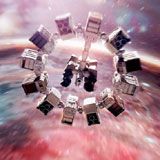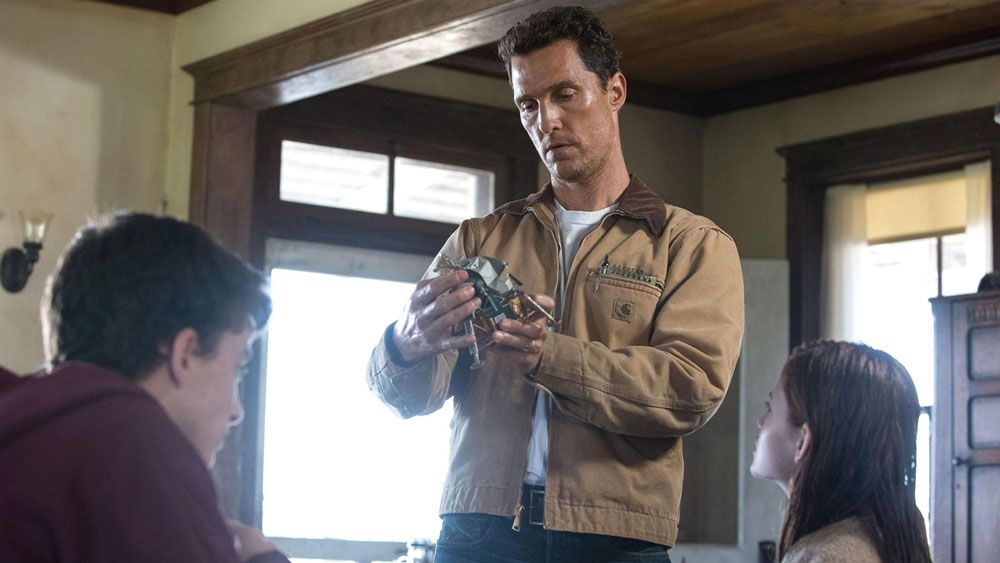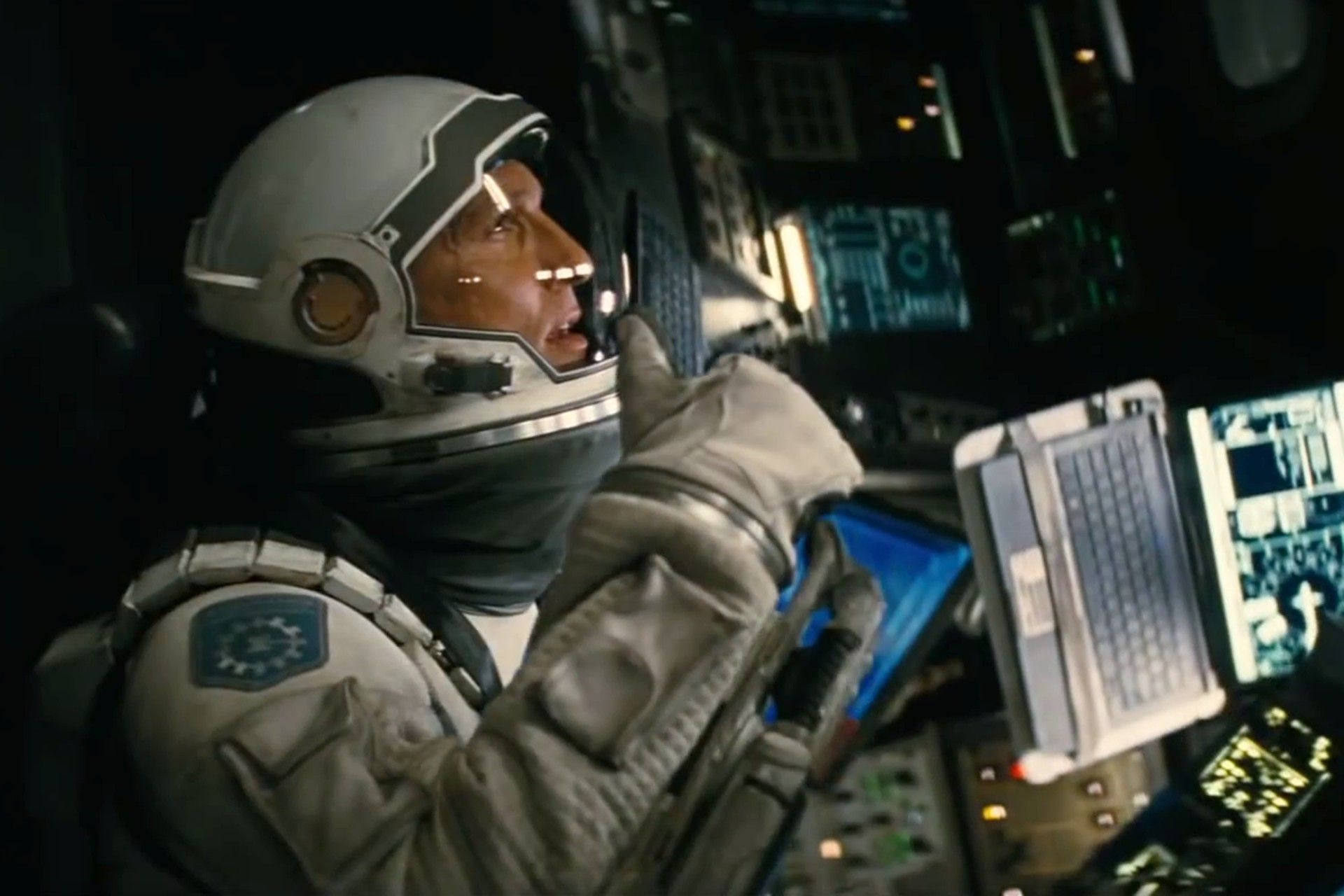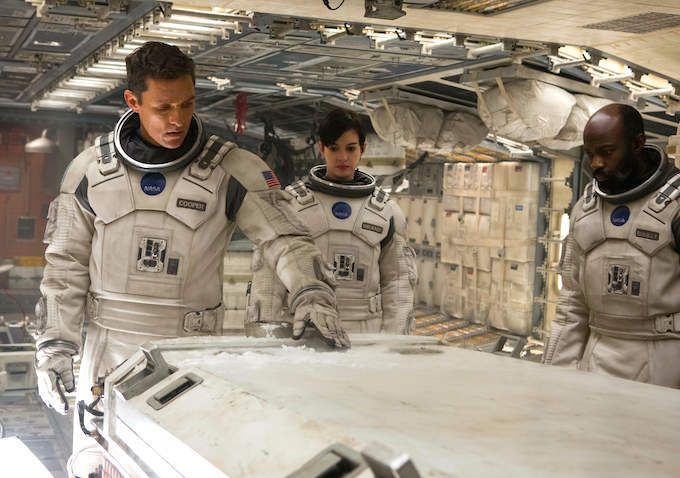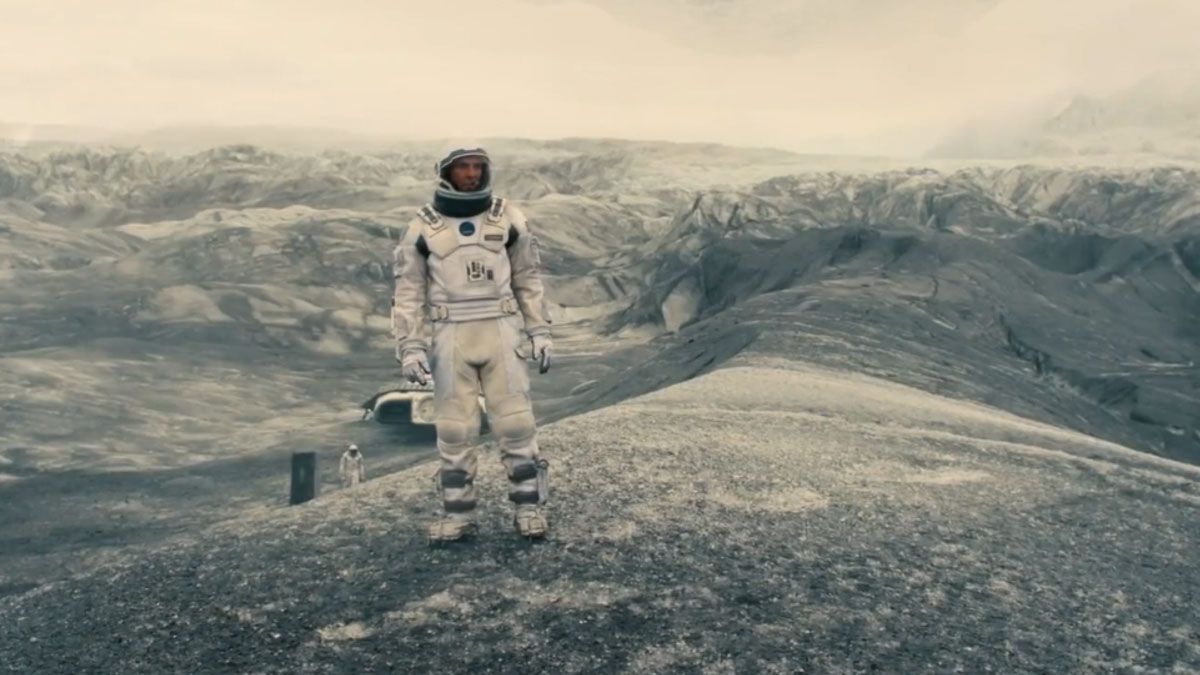SPOILER ALERT: Do not read further if you haven’t seen the movie. Lots of plot details are spoiled below.
Burdened with polarizing reviews from critics, director and co-writer Christopher Nolan’s Interstellar may not have been the smash many were expecting (its nearly three-hour running time probably didn’t help its box office prospects either).
And despite the sci-fi epic earning a “B+” CinemaScore from audiences, the same grade as Nolan’s hit Inception, don’t expect Interstellar to follow in that film’s footsteps. Why? Simple: The story is broken. The narrative issues and unearned motivations that plagued The Dark Knight Rises have taken similar root here, albeit on much larger, potentially more disappointing scale.
The film’s tech and science work, or don’t work, depending on how convenient it is to the plot. Worse, Interstellar suffers from the type of character-logic flaws one expects to find in movies by Michael Bay instead of a film from someone like Nolan, who grounds his stories in the (usually) most believable of physical and emotional realities.
How bad is it? Check out 15 of the film’s most glaring plot holes that will make your head hurt (and if you found one that we missed, add it to the comments).
1. If corn is the world’s only food source, why devote two set pieces where our main characters drive through and destroy massive fields of it?
2. Who was going to fly NASA’s secret mission before Cooper (Matthew McConaughey) showed up?
If Coop is the best pilot Michael Caine’s Dr. Brand has ever known, then why didn’t NASA ask him to sign up for the mission sooner – especially considering Coop lives less than a day’s drive away? (It would’ve been much easier to do that than have Coop rely on bookshelf-dwelling, gravity-communicating “ghosts” to relay coordinates to the top-secret, underground installation.)
3. Instead of sending up the Lazarus Missions, wouldn’t it have been easier for Dr. Brand & Co. to send probes through the wormhole -- or robots like TARS – that are capable of sending back the data necessary to save the human race? (They actually use TARS as a probe to do just that late in the third act.) Robots require 100 percent less water, food and oxygen than humans, therefore making the mission much more efficient, given the time-sensitivity of the crisis at hand. Also, they’re less likely to pull a Dr. Mann and go crazy because the plot says so.
"Interstellar" Filmmakers and Stars Reflect on Space Exploration
4. We’re told Coop is this great pilot, ironically confined to a life farming corn on a dust-covered world instead of exploring its heavens. Yet, we never get to see this core element of his character in action, minus a brief opening sequence depicting Coop seemingly crashing his plane – which isn’t the best way to introduce an expert pilot. (The widely reported sound issues global audiences have experienced when viewing the film unfortunately drown out the dialogue in this sequence, so if we missed anything here, let us know in the comments.)
5. When Cooper leaves Earth and travels to space – realizing his dream for the first time – guess how the film celebrates this milestone? It doesn’t. Not one scene or even a quick beat where this moment registers for our hero. This omission is even more frustrating, given that Nolan was seemingly more concerned with getting the science of his film accurate than giving his story necessary and obvious emotional weight.
6. Also, we can send sad and/or angry family videos from Earth through a wormhole, but we can’t tell Earth that, of the three planets that could be our new home, we should pick the one in the middle?
Jonathan Nolan Discusses Almost Making "Interstellar" With Steven Spielberg
7. So humans evolve to become beings capable of living in and understanding five-dimensional space, but they can’t find a more effective means of communication other than Morse code and binary? And how complicated can the equation Michael Caine can’t solve be if it’s key components can be sent back to a little girl by way of Morse code using the broken minute hand of her watch?
8. Given what’s at stake, why would future humans construct a tesseract of Murph’s bookshelf and bank on Coop being able to communicate the critical information necessary to save humanity instead of doing ANYTHING ELSE? Send a really cool future text or email, perhaps?
9. Why does the character of Romilly spend more than two decades awake on the ship, waiting for Cooper and Brand (Anne Hathaway) to return from their scouting trip? Moreover, how does he not go crazy after spending that much time alone, on a ship, in space? He could have done his complicated work, finished it, returned to cryo-sleep and set a timer to wake up when his fellow shipmates returned.
10. Speaking of crazy: Let’s talk about Dr. Mann. What exactly is his plan?
Why must he try to kill Coop before taking one of the smaller vessels back to Endurance? And when he arrived at the mothership, was his plan to go back to Earth and tell them to press on to Planet Ice for colonization? Or tell them, “Sorry, my bad, this planet can’t support human life?” Whatever his motivations, despite his mental instability, he should have known that opening the airlock without it being properly connected would end not well for him.
Hans Zimmer on His "Interstellar" Leap of Faith
11. Why do our heroes need to touch down on the surface of two worlds covered in water and ice before realizing that water and ice are not sustainable environments for human life? Simply looking out the window while in orbit – or running some sort of scan prior to such exploration – could have saved a lot of time and resources.
12. How is humanity expected to survive living on a world that close to a black hole? The black hole will eventually suck it, and every life Coop risked his own to save, into it. Bad, bad plan.
13. When Cooper is in the fifth-dimension public library, where is TARS and how is the robot able to communicate with Cooper in this unique construct outside known time and space? And how does the future version of humanity know the blueprints of young Murph’s bedroom so well to reconstruct it so perfectly here? Did Coop or Murph tell them?
Review: "Interstellar" is Christopher Nolan's Most Ambitious and Disappointing Film
14. Never mind why no one bothers to think about rescuing Brand until 124-year-old Coop shows up. How does Coop – or anyone, really – know that Brand is still alive on a planet that looks like it was made out of Arizona? More importantly, why does anyone expect her to be alive after more than a hundred years – because the film’s uneven application of the Law of Relativity?
15. The entire movie hinges on Coop’s mandate to get back to his daughter. And when he does, he finds her on her death bed – surrounded by his great-great-great grandchildren. The family he never met has no reaction to their ancestor, other than registering that he’s in the room. And there’s no way that Coop leaves his daughter, at the end of her life, after he misses so much of it. Especially to go in search of Hathaway’s character, someone he barely knows.

